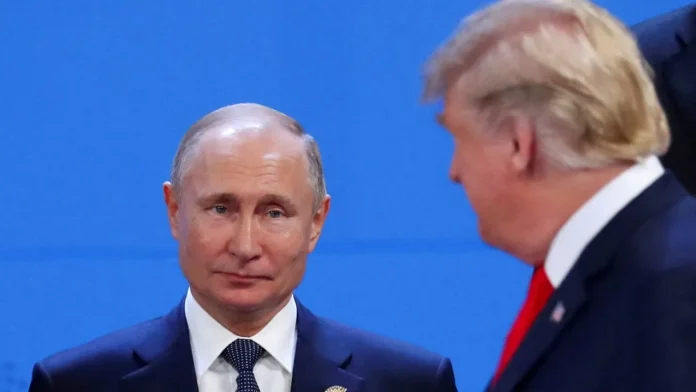US President Donald Trump has once again acknowledged that Russia is coping with sanctions pressure. Despite this, he expressed readiness to impose new restrictions if the Ukrainian conflict is not resolved within the deadline he has set.
Trump spoke to reporters before leaving New Jersey for Washington. One reporter asked the US president what would happen on Friday, if Russia did not agree to a ceasefire, as that was the deadline for his ultimatum.
“Well, sanctions will be imposed, but it seems they are quite successfully avoiding them. You know, they are clever people, and they are quite successful in avoiding them. So we’ll see what happens,” Trump said.
He added that his envoy Steve Witkoff, who is due to visit Moscow in the coming days, is now “focused on the border, including Gaza, on getting food to the people.”
“And I think on Wednesday or Thursday, he may go to Russia,” Trump added.
Last week, Trump said that a 10-day ultimatum for Russia to end the war in Ukraine would begin on July 29. “10 days from today. Then we will impose tariffs. This will obviously affect Russia, and maybe it won’t,” Trump said.
In addition, he said that India will pay a 25% tariff from August 1, as it is Russia’s largest buyer of energy resources.
Later, Putin publicly commented on Donald Trump’s words that the US leader was disappointed in the Russian president.
“As for any disappointment on anyone’s part, all disappointments arise from excessive expectations. This is a well-known general rule. But in order to resolve the issue peacefully, it is necessary to hold detailed talks. And not in public, but calmly, in the quiet of the negotiating process,” Putin said.
India will continue to buy Russian oil despite Trump threats
Indian oil refineries will continue to buy oil from Russia, officials said, amid threats from the United States to impose sanctions on Moscow’s trading partners over the conflict in Ukraine, according to Bloomberg.
On Friday, media reported that India, a major energy importer, would stop buying cheap Russian oil. Later, Trump told reporters that such a move would be “a good move” if it were true.
“I understand that India is no longer going to buy oil from Russia,” the US president said. “That’s what I’ve heard. I don’t know if it’s true or not. It’s a good move. Let’s see what happens.”
However, official sources in India, quoted by the Bloomberg, denied Trump’s statement, saying that Indian oil companies had not suspended Russian imports and that decisions on supplies were based on “price, crude oil grade, stocks, logistics and other economic factors.”
Sources cited by Bloomberg said that Indian refineries were operating in full compliance with international norms and that Russian oil had never been subject to direct sanctions by the US or the EU: “Instead, it has been subject to a G7 and EU price cap mechanism designed to limit revenues while ensuring continuity of supply worldwide.”
The sources added: “India’s purchases have remained fully legal and within international norms.”
The sources also noted that if India had not “absorbed Russian oil at a discount combined with OPEC+ production cuts of 5.8 million barrels per day,” global oil prices could have significantly exceeded the March 2022 peak of $137 per barrel, which would have exacerbated inflationary pressures worldwide.
Russia is India’s largest oil supplier, accounting for about 35% of the country’s imports. India says that as a major energy importer, it must find the cheapest sources of supply to protect its population from rising prices.
